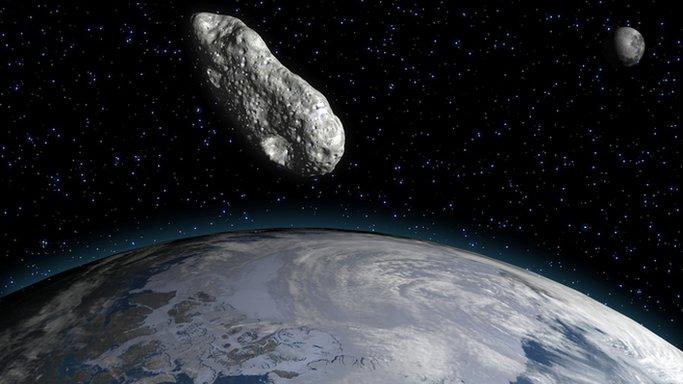Alien life could be living in the clouds above Venus
- Published
- comments
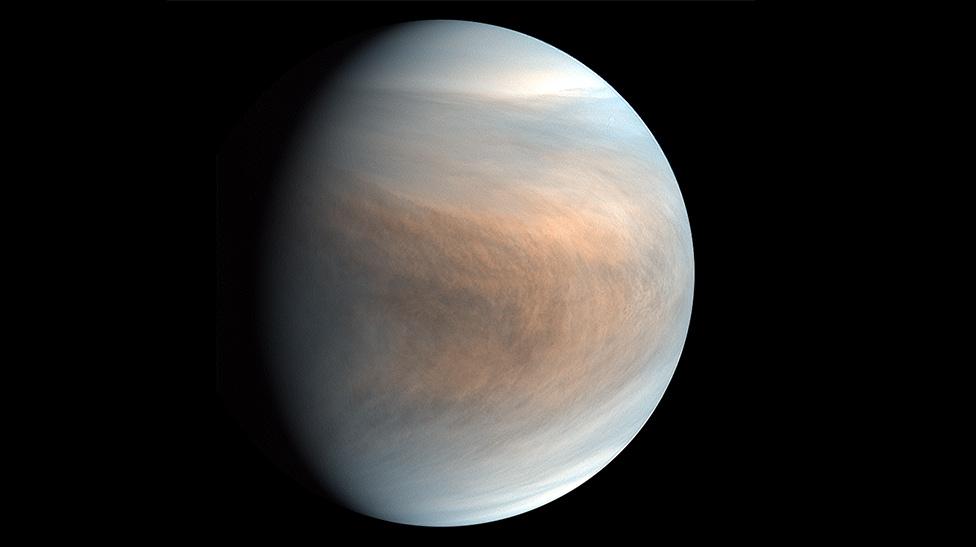
There's a chance alien life could live in the clouds above Venus, our second closest neighbour in the solar system.
Scientists have been left surprised by the discovery because when it comes to finding life on nearby worlds, the planet of Venus is one of the most unlikely of places.
Venus has an atmosphere almost entirely made from the gas carbon dioxide (CO2) which is poisonous to humans and animals, and because it's the second planet closest to the Sun, its surface is really, really hot - about 465 degrees Celsius (900 degrees Fahrenheit) - basically the temperature of a pizza oven.
But now researchers say they have discovered another gas, 50km up from the planet's surface and one that they can't explain.
That gas is called phosphine.
On Earth, phosphine is important for life, it's found in places with not much oxygen, such as swamps or in the bellies of animals such as penguins. Small amounts can be created by the breakdown of living material.
There are definitely no penguins on Venus, so what has caused phosphine to be there? Well that's the reason scientists are still scratching their heads.
Prof Jane Greaves and her team from Cardiff University first discovered phosphine using a large telescope in Hawaii.
"Through my whole career I have been interested in the search for life elsewhere in the Universe, so I'm just blown away that this is even possible," she said.
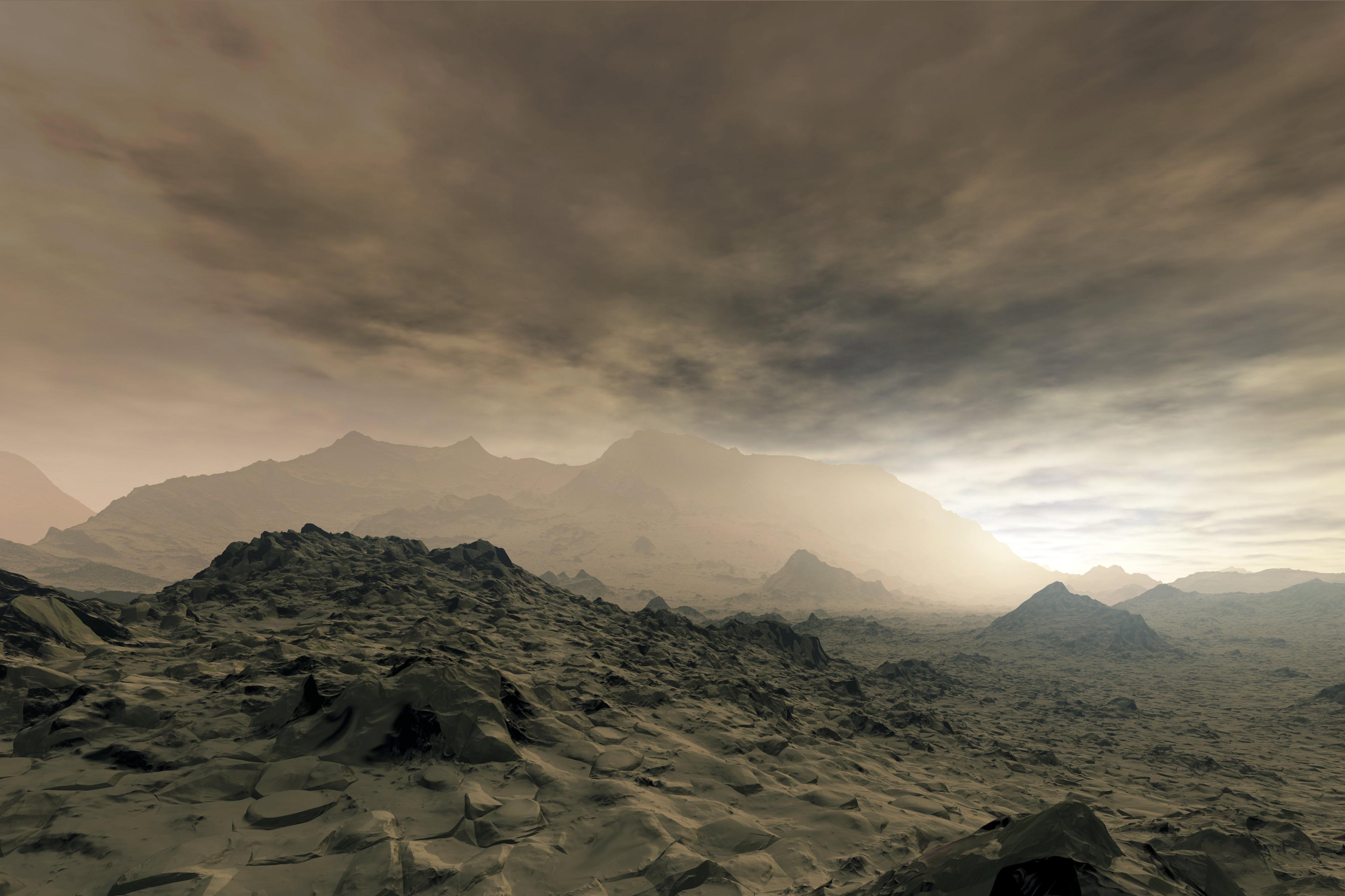
Artwork: Venus would not be a nice place to live
So is there life?
Unfortunately there isn't a definitive answer to that question, but any life would be microscopic, meaning very small.
The surface of Venus is pretty grim - space probes that have landed on the planet have survived just minutes before breaking down. However, up in the clouds is a much cooler environment so, if there really is life on Venus, that is exactly where you would expect to find it.
However, this is Venus we're talking about. The planet's clouds are thick and contain sulphuric acid, which would be deadly for any living organism here on Earth.
Dr William Bains, from the Massachusetts Institute of Technology (MIT) in the US, is a biochemist on the team. He studied whether volcanoes, lightning and even meteorites on Venus could cause phosphine - and out of all the chemical reactions he's investigated, he says they're far too weak to produce the amount of phosphine that has been discovered.
To survive the sulphuric acid, Dr Bains believes life on Venus would be airborne microbes that have used some unknown, radically different biochemistry, or evolved a kind of armour.
"In principle, a more water-loving life could hide itself away inside a protective shell of some sorts inside the sulphuric acid droplets," he said. "We're talking bacteria surrounding themselves by something tougher than Teflon and completely sealing themselves in. But then how do they eat? How do they exchange gases? It's a real paradox."

Artwork: Sending a balloon to Venus might be one way scientists can answer the question about whether there is life on the planet
Dr Lewis Dartnell from the University of Westminster is an astrobiologist - someone who studies the possibilities of life beyond Earth. He thinks Mars or the moons of Jupiter and Saturn are more likely places to find life.
"If life can survive in the upper cloud-decks of Venus - that's very illuminating, because it means maybe life is very common in our galaxy as a whole. Maybe life doesn't need very Earth-like planets and could survive on other, hellishly-hot, Venus-like planets across the Milky Way."
When will we find out if there is alien life on Venus?
Nasa is planning a mission in the 2030s, where a balloon called an aerobot will be launched from a space craft to travel through the clouds of Venus collecting data.
- Published17 April 2020
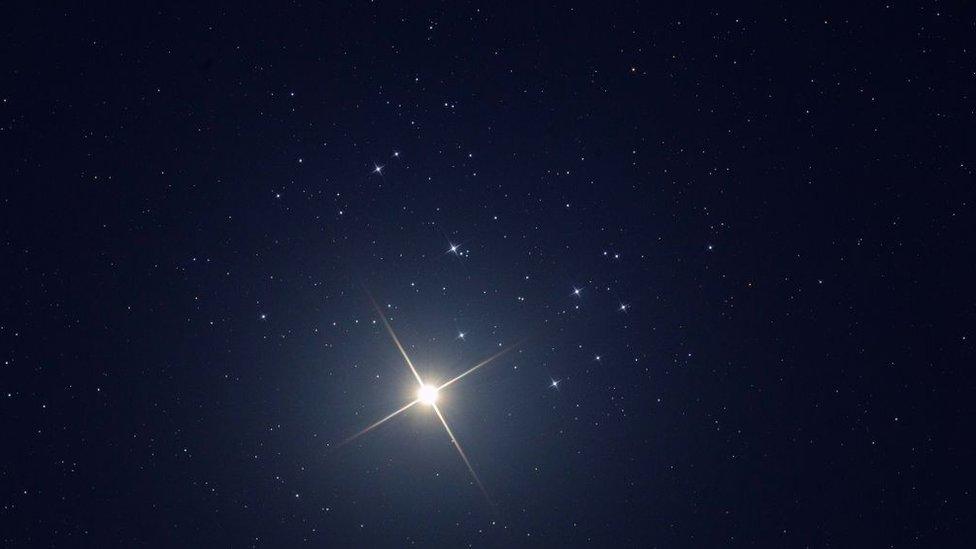
- Published12 September 2020
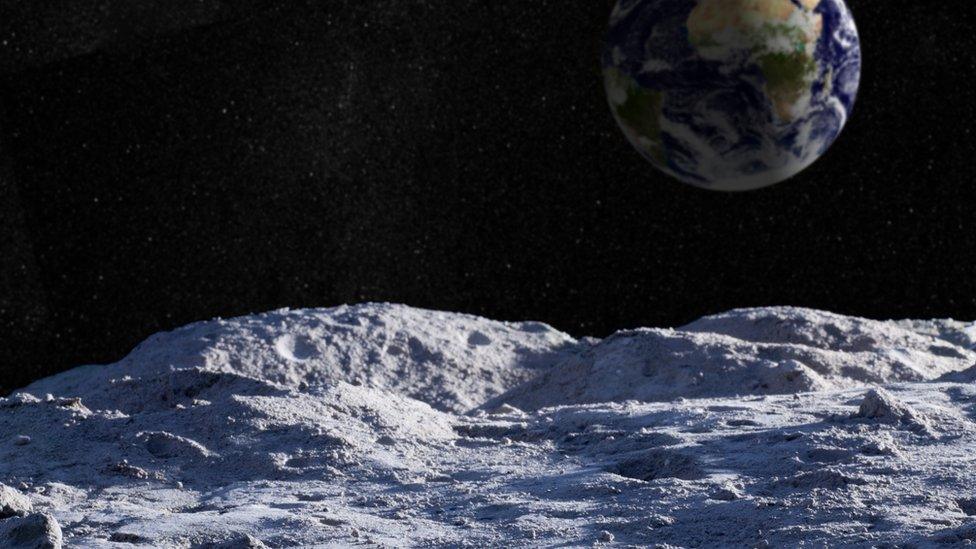
- Published8 September 2020
